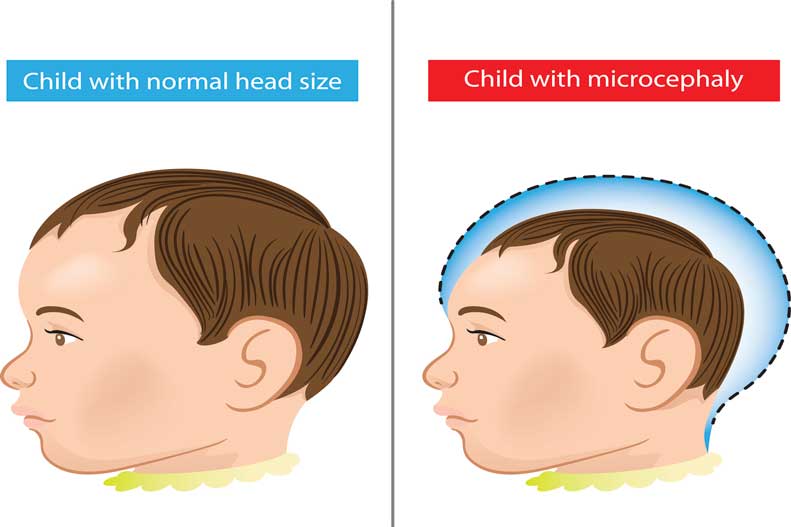This article was last updated on August 2, 2016
Check back in with the UPMC HealthBeat blog for news and updates on the Zika virus.
You may know that the Zika virus is potentially dangerous for pregnant women because of its link to birth defects.
But what are these birth defects? And how can they affect an unborn baby? Learn more about the risk of birth defects from Zika — and what expecting mothers can do to protect themselves.
Guillain-Barré Syndrome and Zika
The Zika virus is also linked to Guillain-Barré Syndrome (GBS), an uncommon illness of the nervous system in which a person’s own immune system damages nerve cells, causing progressive muscle weakness and even sometimes paralysis. GBS is likely triggered by Zika in a small proportion of infections.
GBS can led to the following symptoms
- Weakness of the arms or legs
- Weakness in face muscles that control eye movement or swallowing
- Difficulty breathing in severe cases
- Paralysis in severe cases
Microcephaly and Zika
Zika is also casually linked to microcephaly, a birth defect in which a baby’s head is smaller than expected compared to babies of the same age. Babies with microcephaly often have smaller brains that will likely not develop properly, according to the Centers for Disease Control and Prevention.

Microcephaly, depending on the severity, may cause the following problems:
- Seizures
- Developmental delays, such as issues with speech
- Intellectual disability
- Problems with movement or balance
- Difficulty swallowing
- Hearing loss
- Vision complications
Other Birth Defects and the Zika Virus
In addition to microcephaly and Guillain-Barré Syndrome, the Zika virus may cause other birth defects including:
- Eye defects
- Hearing loss
- Impaired growth
Pregnant women should avoid travel to areas experiencing ongoing Zika outbreaks when possible. If travel cannot be avoided, pregnant women should follow the CDC’s mosquito bite prevention guidelines. These include applying DEET insect repellent, wearing long-sleeves and pants, and staying inside within air-conditioned areas. Remember, insect repellent is safe for pregnant women to use.
The vast majority of mosquito-borne Zika cases are travel-related: People generally have contracted the virus after traveling to affected areas. In August 2016, the CDC issued a travel warning for pregnant women, advising them to avoid the Miami-area community of Wynwood, where the virus may be circulating.
“It’s also important to remember that not all pregnant women who contract the Zika virus will end up with complications or a baby born with defects,” said Richard Beigi, MD, vice president of medical affairs and chief medical officer at Magee-Womens Hospital of UPMC.
Consult your doctor if you’re concerned about Zika or are planning to travel.
